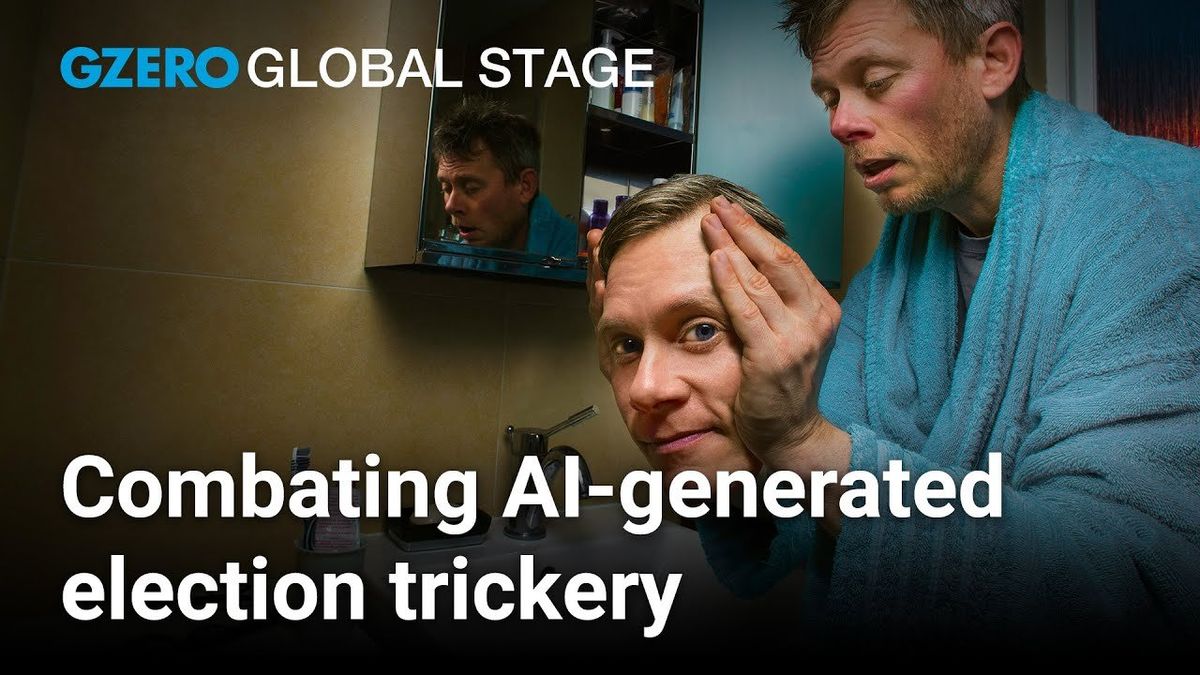Tech accord on AI & elections will help manage the ‘new reality,’ says Microsoft’s Brad Smith
At the Munich Security Conference, leading tech companies unveiled a new accord that committed them to combating AI-generated content that could disrupt elections.
During a Global Stage panel on the sidelines of this year’s conference, Microsoft Vice Chair and President Brad Smith said the accord would not completely solve the problem of deceptive AI content but would help “manage this new reality in a way that will make a difference and really serve all of the elections… between now and the end of the year.”
As Smith explains, the accord is designed to bring the tech industry together to preserve the “authenticity of content,” including via the creation of content credentials. The industry will also work to detect deepfakes and provide candidates with a mechanism to report them, says Smith, while also taking steps to “promote transparency and education.”
The conversation was part of the Global Stage series, produced by GZERO in partnership with Microsoft. These discussions convene heads of state, business leaders, technology experts from around the world for critical debate about the geopolitical and technology trends shaping our world.
Watch the full conversation here: How to protect elections in the age of AI
- How AI and deepfakes are being used for malicious reasons ›
- Deepfakes are ‘fraud,’ says Microsoft's Brad Smith ›
- AI explosion, elections, and wars: What to expect in 2024 ›
- AI, election integrity, and authoritarianism: Insights from Maria Ressa ›
- How AI threatens elections ›
- How to protect elections in the age of AI ›
- AI & election security - GZERO Media ›
- Join us Jan. 22 from Davos for a Global Stage discussion on the AI economy - GZERO Media ›

















